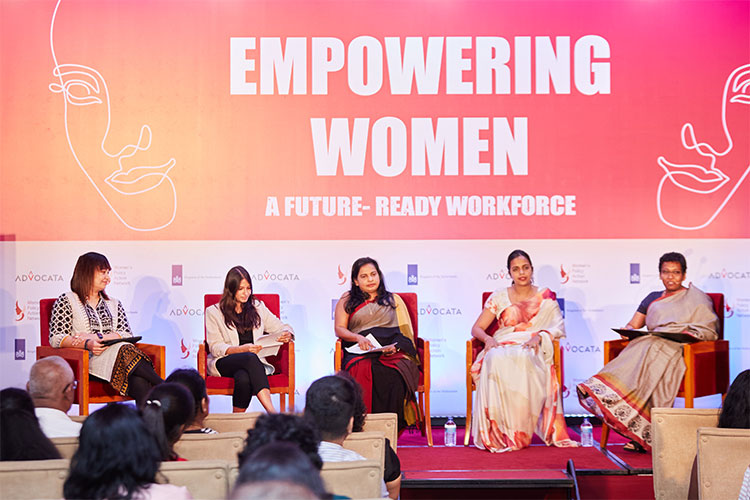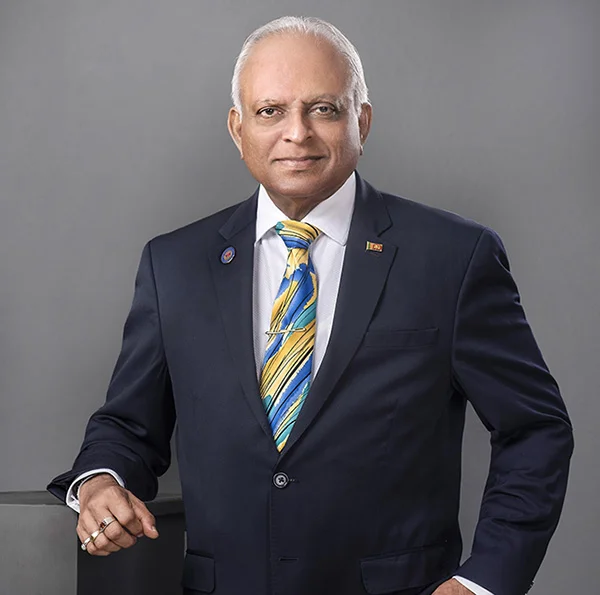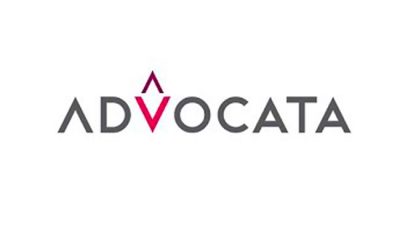Business
Advocata – Driving evidence based policy reforms that enhance women’s economic participation and empowerment

Advocata Institute held the “Women’s Policy Action Network” (WPAN) conference on the 29th of August, 2023, to put forward Advocata’s continuous and WPAN’s research on the gaps, barriers and potential solutions for further enhancing women’s economic empowerment in Sri Lanka.
The primary aim of the WPAN is to lobby for evidence-based policy reforms that support greater labour force participation of women, despite the societal burdens expected of them. The conference explored two of the most pressing barriers; the unpaid care work burden, and the lack of access to the digital economy.
The event consisted of representatives from civil society organizations, policymakers, and forward thinking leaders who generated strong advocacy conversations on solutions and implemented projects that support women participation in the workforce.
The project donor, represented by The Deputy Head of Mission of the Kingdom of the Netherlands said that, “Gender equality is the key to accelerate economic growth in any given scenario, even during an economic crisis, or should I say especially in an economic crisis. We believe that goes for the Netherlands, for Sri Lanka and all other countries.”
The first panel on social infrastructure for gender equality and empowerment was preceded by a research presentation carried out by Akhila Randeniya and Thathsarani Siriwardana on care work. It was highlighted here that 60% of women who don’t participate in the labor force cited “housework” as a reason. Childcare, elderly care and parental leave were identified as core issues under the umbrella of care work. It was estimated that by 2050 Sri Lanka’s old age dependency ratio will double and thus disproportionately affect women who bear the burden of unpaid care.
It was also stated that it would only cost the government Rs.5.9bn to cover maternity leave benefits, which amounted to 0.5% of 2021 tax revenue.
Recommendations were, for better monitoring and regulation of child and elderly care centers, and engaging the State to share the burden of maternity leave benefits instead of the employer particularly for the SME sector.
The panel, moderated by Niroshi Perera, consisted of Gayani de Alwis, Isuru Gunasekera, Dr.Ramani Gunatilaka and Rosy Senanayake. The panel reiterated the importance of standardisation of care centers as well as recognising part time and flexi work arrangements to help alleviate this gendered burden.
Research on “Unlocking Women’s Potential in the Digital Economy” was presented by Chantal Dassanayake and Thathsarani Siriwardana. The presentation highlighted four key barriers that impede women’s pursuit of digital entrepreneurship and economic empowerment: limited accessibility, expensive devices and internet access costs, low digital literacy, and inadequate digital payment systems in Sri Lanka.
The digital economy’s potential to enhance women’s participation is tied to its flexibility, multitasking, and revenue opportunities. It was stated that subpar digital infrastructure hampers women’s access. Sri Lanka’s internet costs are notably high compared to its neighbors. Despite a relatively high digital literacy rate of 57.2%, email usage remains low at only 17.8%. Additionally, internet usage doesn’t align with the digital literacy rate. The research further highlighted that lack of trust in digital payments serves as a significant barrier to the adoption of digital payment systems. The panel consisting of Chiranthi Cooray, Chadika Yahampath, Amira Gaffoor, Anishka De Zylva and moderated by Dr.Roshan Perera discussed issues faced by the modern women in the digital space. They spoke of educational and societal barriers that disincentivized women from engaging in STEM (Science, Technology, Engineering and Maths). There was also discussion about issues with digital payments and infrastructure.
The keynote speech, delivered by Lakmini Wijesundera, who shared her journey as a female entrepreneur in the digital space. She ended her speech with words of advice to females everywhere, “it’s all about believing in a dream, working towards it and achieving it.”
Advocata is an independent policy think tank based in Colombo, Sri Lanka. We conduct research, provide commentary and hold events to promote sound policy ideas compatible with a free society in Sri Lanka. Visit advocata.org for more information.
Watch the full discussion on Youtube and for more information visit www.advocata.org. Advocata spokespersons are available for live and pre-recorded broadcast interviews via 0740289818
CONTACT:
Akhila Randeniya
Research Assistant
Advocata Institute
Phone: +94 77 895 1491| Email: akhila@advocata.org
Business
War in Middle East sends shockwaves through Sri Lanka’s export sector

Sri Lanka’s export sector is bracing for fresh turbulence as the escalating conflict involving Iran and parts of the Middle East begins to send shockwaves through global trade, shipping and energy markets.
Though geographically distant from the conflict zone, Sri Lanka’s exporters are far from insulated. Industry leaders warn that higher freight costs, rising oil prices and increased trade risks could erode margins and disrupt key markets if hostilities intensify.
President of the National Chamber of Exporters of Sri Lanka, Indhra Kaushal Rajapaksa told The Island Financial Review that the situation is being closely monitored, as the export community is already feeling the early tremors of global instability.
“Sri Lanka may not be directly involved in the conflict, but we are deeply integrated into global supply chains. Any disruption in the Middle East immediately translates into higher costs and operational uncertainty for our exporters,” Rajapaksa said.
A major concern is the vulnerability of critical maritime corridors such as the Strait of Hormuz and the Red Sea, through which a significant share of global trade and oil shipments pass. Shipping lines have begun rerouting vessels and imposing emergency risk surcharges amid mounting security threats, while insurers are reassessing risk exposure in the region.
“Freight costs had only recently begun stabilising after the pandemic-era disruptions. Now, with vessels avoiding high-risk zones and insurers raising premiums, exporters are once again facing unpredictable shipping expenses,” he noted.
For time-sensitive exports such as apparel and perishables, delays could undermine Sri Lanka’s hard-earned reputation for reliability in competitive markets.
Exporters fear that prolonged instability could trigger sustained freight rate hikes similar to those witnessed during previous global disruptions.
The conflict has also driven global oil prices upward on fears of supply disruptions and shipping bottlenecks. Given that the Middle East accounts for a substantial share of global crude oil output, even perceived threats to supply have immediate price implications.
For Sri Lankan exporters, higher oil prices translate directly into increased fuel, electricity and transportation costs. Manufacturing sectors such as apparel, rubber products, plastics and food processing are particularly vulnerable, as energy forms a core input cost across operations.
“Energy is a fundamental cost component in nearly all export industries. When global oil prices rise, the impact cascades through logistics, production and even raw material pricing,” Rajapaksa explained, warning that sustained high energy costs could squeeze already thin margins.
Beyond cost pressures, the Middle East remains a crucial destination for Sri Lankan exports, especially tea and food products. Around 25 percent of Sri Lanka’s tea exports are shipped to Middle Eastern markets, making the region strategically important for the plantation sector.
“The Middle East is not just a transit route; it is a major market. If economic activity slows in those countries, or if banking and payment channels become complicated due to the conflict, our exporters will face direct consequences,” he cautioned.
War conditions also elevate trade finance and insurance risks. Cargo insurance premiums are climbing, and banks may adopt a more cautious stance toward trade credit involving affected regions.
Exporters could face payment delays, tighter financing conditions and higher compliance requirements, raising the overall cost and complexity of doing business.
This comes at a sensitive time for Sri Lanka’s economy, which is navigating recovery. Higher global oil prices would widen the import bill, potentially exerting pressure on the rupee and fuelling domestic inflation. While currency depreciation can sometimes enhance export competitiveness, rising input costs may offset any exchange rate advantage.
Despite the challenges, he pointed to potential opportunities if Sri Lanka responds strategically. As global buyers seek to diversify supply chains away from unstable regions, Sri Lanka could position itself as a reliable sourcing hub for apparel, rubber-based products, processed foods and value-added agricultural goods.
“In every global disruption there are risks, but there are also opportunities. If Sri Lanka strengthens trade facilitation, improves logistics efficiency and ensures policy consistency, we can attract buyers looking for stable alternatives,” he said.
He stressed that resilience and preparedness would be critical in the weeks ahead, as exporters closely watch developments in the Middle East and global energy markets, aware that distant conflicts can swiftly reshape local economic realities.
By Ifham Nizam
Business
Ranil says Iran leadership eviction methodology unacceptable

Ranil Wickremesinghe on Monday criticised the methodology adopted by U.S. President Donald Trump in dealing with Iran, stating that externally driven attempts to dismantle the leadership of another sovereign nation are unacceptable and fraught with dangerous global consequences.
Addressing a group of social media activists at the United National Party (UNP) office on Flower Road, Colombo, Wickremesinghe said that while geopolitical tensions in the Middle East were deepening, the principle of state sovereignty must not be undermined under any circumstances.
Referring to recent escalations between Washington and Tehran and remarks attributed to President Trump concerning Iran’s Supreme Leader Ali Khamenei, Wickremesinghe said:
“President Trump has alleged that Khamenei’s government was responsible for the deaths of hundreds of people in Iran and that action was taken to remove that leadership. However, the methodology used for dismantling the leadership of another administration in such a manner is not acceptable.”
He added that President Trump appeared to be seeking to engage in global affairs “as he likes,” warning that such actions carried far-reaching implications beyond the immediate theatre of conflict.
“What has happened following the Iran strikes is an issue with deep implications,” Wickremesinghe said, noting that the balance of power in sensitive regions must not be disturbed recklessly. Drawing a regional parallel, he observed that control of strategic sea lanes such as the Indian Ocean could not be handed over to a single dominant power.
On the economic fallout, Wickremesinghe sought to allay fears of a severe energy crisis in Sri Lanka. “Amid supply constraints because of Iran, it won’t be a big issue as other oil-producing countries will offer sufficient supplies,” he said. However, he expressed concern over the government’s overall economic management. “I don’t see this ballooning into a significant issue, but my concern is whether the government can manage the economy as it is.”
As he made these comments, the Sri Lankan government has yet to formally articulate its position on the escalating Middle East crisis, and Foreign Minister Vijitha Herath has not publicly clarified the government’s official stance.
Responding to a question on whether he was prepared to assume responsibility for governance again, Wickremesinghe said the present administration must be allowed to discharge its mandate. “Let the government go ahead and address the issues. We shouldn’t let them escape the responsibility they have taken upon themselves,” he said.
Commenting on the 90-day detention of former defence intelligence chief Suresh Saleh in connection with investigations into the 2019 Easter Sunday attacks, Wickremesinghe described the matter as a “closed case.” He pointed out that foreign intelligence agencies, including the Federal Bureau of Investigation (FBI), had already submitted their findings.
“Foreign intelligence bodies such as the FBI have submitted their reports and conclusions. The government’s probe direction is not in line with that. Pursuing the case afresh in this manner is a waste of public money,” he said.
Wickremesinghe’s remarks are particularly noteworthy given the long-standing perception of the UNP as broadly aligned with Western policy positions. During President Trump’s first term, when the U.S. administration threatened to suspend funding to the World Health Organization (WHO) at the height of the COVID-19 pandemic, Wickremesinghe publicly appealed to President Trump to reconsider this move , stating that developing countries such as Sri Lanka would face severe repercussions if global health funding were curtailed.
His latest comments therefore signal a clear defence of diplomatic norms and national sovereignty at a time of rising geopolitical volatility, while underscoring his view that global power rivalries must not override established principles of international conduct.
by Sanath Nanayakkare
Business
Dialog partners with Ratmalana Audiology Centre for World Hearing Day 2026

– Offers free hearing tests throughout March
Dialog Axiata PLC, Sri Lanka’s #1 connectivity provider, marks World Hearing Day 2026 by offering free hearing tests throughout March at the Ratmalana Audiology Centre (RAC), reaffirming its commitment to expanding access to hearing care services across Sri Lanka.
Aligned with the 2026 global theme, “From communities to classrooms: hearing care for all children,” the initiative supports greater awareness of early detection and timely intervention, while making hearing screening services accessible to individuals of all ages. The programme is conducted in partnership with RAC, a collaborative project with the Ceylon School for the Deaf and Blind.
Free hearing tests will be available from 3rd to 31st March between 8:30 AM and 5:00 PM. Screenings are open to the public, including both children and adults, particularly those who may have limited access to hearing healthcare services. Appointments can be scheduled by contacting 011 730 7308 or 077 394 5945.
Over the years, Dialog has invested more than Rs. 70 million in the establishment and ongoing enhancement of RAC, which was set up in 2007 to support students of the Ceylon School for the Deaf and Blind while extending services to the wider community. RAC provides free hearing assessments for individuals referred by Government ENT specialists, alongside speech and language therapy, hearing aid evaluation and fitting, and follow-up rehabilitation services.
-

 Opinion5 days ago
Opinion5 days agoJamming and re-setting the world: What is the role of Donald Trump?
-

 Features5 days ago
Features5 days agoAn innocent bystander or a passive onlooker?
-

 Features2 days ago
Features2 days agoBrilliant Navy officer no more
-

 Features6 days ago
Features6 days agoRatmalana Airport: The Truth, The Whole Truth, And Nothing But The Truth
-

 Opinion2 days ago
Opinion2 days agoSri Lanka – world’s worst facilities for cricket fans
-

 Business6 days ago
Business6 days agoIRCSL transforms Sri Lanka’s insurance industry with first-ever Centralized Insurance Data Repository
-

 Business5 days ago
Business5 days agoAn efficacious strategy to boost exports of Sri Lanka in medium term
-

 Features3 days ago
Features3 days agoOverseas visits to drum up foreign assistance for Sri Lanka



















